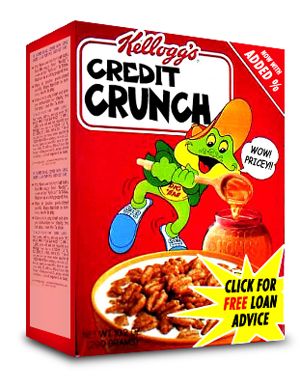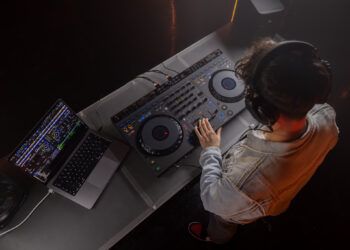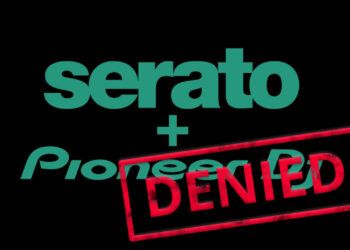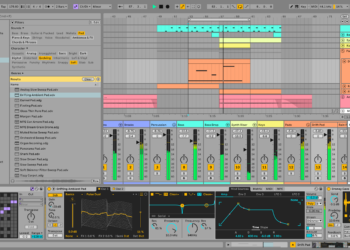The digitization of dance music has mostly benefited DJs around the globe. Customers in every country have increased access to a significantly larger catalog of music, and newly formed labels can now reach those DJs without a big investment of money. It may even be reasonable to attribute the resurgence of dance music’s popularity to the inevitable conversion to an online format. After a long slump in 12-inch vinyl sales, many dance labels are making a comeback or even re-entering the market after closing their doors.
I went to several labels and producers who have weathered the ups and downs of the past 10 years and asked them a simple question: “Are you better off now that everything is digital?” Their answers may surprise you.
THE REVOLUTION WILL NOT BE MONETIZED
It’s easy to assume that the digital revolution has been good for everyone because online retailers are doing tremendous numbers, and most DJs are converting their collections to digital. Has that translated into more revenue for indie dance labels? “Not really,” reports Phil Cheeseman, who first joined Strictly Rhythm records (www.strictly.com) in 1992. “The amount of money made for each sale is lower, and there are still mastering, artwork, promotion and distribution costs,” he says. “We still need to see a fairly big upturn in digital sales to replace the lost vinyl sales in revenue terms. However, in time, labels with good-quality catalogs will benefit from the always-available status of downloads.”
Nick Harris, one of the founders of NRK Records (www.nrkmusic.com), has managed to keep his label alive through the ups and downs of the dance market. While NRK has also seen its income drop, he suggests there are more factors at play. “It isn’t necessarily due to digital conversion; margins have always been thin in the independent-record industry. But the whole music industry is in decline anyhow. With the focus on entertainment shifting to DVDs and video games, there are just not the numbers of people passionately buying music nowadays.”
Selling 12-inch dance records was never a terribly profitable venture, but it still managed to fund and maintain a community of artists and labels for many years. More importantly, it provided the exposure necessary to get those artists the gigs and licensing deals that really paid the bills. Perhaps digital music is just a more convenient calling card? Cheeseman seems to think so. “That’s even more the case now as many — if not most — producers make very little from their records.” Really? If anyone was supposed to benefit from the digital conversion it should be the artists, right? So how are the artists faring now that most of their records are online?
MUSICAL CALLING CARDS
There are few more experienced or respected producers in the house-music world than Kerri Chandler. He has consistently put out quality records for more than 20 years and weathered more than just a few swings in house music’s popularity. When asked if he sees digital as a new way for artists to make money, Kerri responds, “Honestly, it’s an easier way to get the track out there, but I see it now as more of a promotional tool because everyone seems to give out the tracks anyway. It’s almost impossible to stop that. So I kind of put something more interesting on the vinyl version — artwork or something that can only be done with a true record. Inserts, signatures and stuff like that.”
So, even though digital downloads may have contributed to a resurgence in dance music, it appears that this narrower niche also suffers from the big conundrum facing most of the music industry at large. Digital is a great promotional tool, but few are making more money selling it. Chandler pointed out an important fact that most people forget. “Everyone followed the iTunes model,” he says. “However, iTunes wasn’t interested in selling songs — just the machines to play them to make their money back.” Chandler is right; Steve Jobs never intended to get rich off the iTunes store, even though its dominant sales haven’t hurt Apple any. The real gold medal was cornering the market on digital playback hardware with the iPod.
PILE IT ON
So how can an artist come up with his or her own unique strategy? Well, one thing would be giving your fans added value, a tip that comes from an industry claiming it’s impossible to make any money in the current economic climate: the airlines. Up over a crowded field, there peeks an airline that has blossomed in spite of others’ failures: Singapore Airlines. The company’s model was simple: Give customers little things they like — make their experience positive, and they will come back. Compared to the cattle-car feeling that comes with most airlines these days, it’s not surprising that Singapore is flourishing.
Some bands have caught on to the added value technique by starting to offer an interesting proposition: Buy the 12-inch vinyl album and also download the entire thing for free. That combo has contributed to an overall spike in vinyl sales in general, which jumped 36 percent from 2006 to 2007, according to the Recording Industry Association of America (www.riaa.com). This trend seems to be mostly centered around the indie-rock scene but may eventually trickle over to dance music, where there are still a significant number of vinyl holdouts refusing to relinquish their collections in favor of a laptop.
Ultimately, it remains to be seen how the profits will pan out and whether guys like Kerri Chandler and Nick Harris will continue pressing records for another 10 years. Personally, I have confidence they will. Even if digital never turns into a profitable venture, there will always be a market for creative people and the inspiring music they make
This article was taken from my column “the digital dj” in Remix magaine









